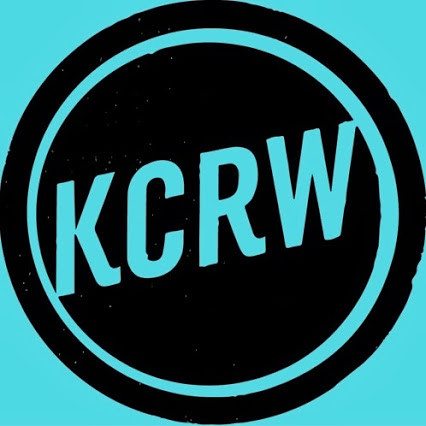

“Thank you for your service.”
It’s a line we hear and say a lot around Veteran’s Day, especially in California, home to 1.8 million veterans, more than in any other state.
But if we really want to show gratitude for our veterans, then we need to do more than utter a simple “thank you.” We need to help these brave heroes find a middle-class life when they return from serving our country.
According to the Department of Veterans Affairs annual survey of veterans, jobs are the biggest concern for our returning veterans and for good reason — the unemployment rate for veterans of recent conflicts is an unacceptable 10 percent and 1.5 million young veterans – many with families to support — currently live under the poverty line.
It hasn’t always been like this. According to Nick Berardino, Vietnam Veteran and General Manager of the Orange County Employees Association:
“When we came back from Vietnam,
» Read more about: Labor Initiative to Help Struggling Veterans »


As every resident of the Southland must know by now, this month marks the centennial of the Los Angeles Aqueduct. When, in 1913, the valves were first turned and water rushed down the last hillside between the Eastern Sierra and the San Fernando Valley, William Mulholland, the brilliant self-taught engineer who guided the project, and whose career would end when the St. Francis Dam collapsed, famously said, “There it is. Take it.”
A small group of anonymous but rich men already had. And they will again, if they can.
A hundred years ago, these self-styled “civic leaders” cooked up a plan that began by stealing all the water that flowed down the Owens Valley on the eastern side of the Sierra Nevada. If you’ve seen Chinatown you know this plot. A faked water-shortage scare stampeded L.A. voters into supporting a bond measure that provided funds to purchase ranch and farm properties in the Owens Valley,


More than any other public policy issue, health care is very personal. So it is not surprising that personal stories are a central battleground for the public perception of the Affordable Care Act. And it is increasingly clear that this battle will be fought through the prisms of class and race.
The Affordable Care Act (ACA) would not have become law if it were not for the willingness of survivors of the nation’s health care mess – people who had lost loved ones, fought to get care after an insurance company denial, faced crippling medical costs – to tell their stories to members of Congress and the press. Many members of Congress voted for the bill, despite the political risk, because they were moved by personal encounters with constituents with compelling stories. Many of the most effective spokespeople during the legislative battle over the law were people whose lives and livelihoods had been threatened by our defective health coverage system.
» Read more about: Halloween’s Over But Media’s Obama-scare Stories Persist »


The motorcade of JFK commemorative TV programs began this week and will continue through the half-century anniversary on November 22. The 35th president’s reputation has run the arc from martyr to cultural piñata and, if JFK: A President Betrayed is any indication, is returning to sainthood.
Like just about anything open to historical interpretation, Kennedy’s thousand days in office and his assassination provide grist for the relentless, endless shouting matches that have replaced the American conversation about our national identity. In fact, I would say that the culture wars did not start with the Pill, the Beatles, Lenny Bruce, Timothy Leary or Mario Savio – they began the minute John F. Kennedy was pronounced dead.
There was some minor confirmation of this today in the online reaction to the review, by Los Angeles Times TV critic Robert Lloyd, of the National Geographic Channel’s Killing Kennedy,


I have been practicing the first two
lines of a poem by Chung Ling:
“I make fast my white barge
to the bank of the brimming stream.”
One of my students wrote it out for me
phonetically. I want to say these lines
to the old Chines guys I swim
with every afternoon at the Y.
I think they would enjoy it. I think
they would like me. Today there is
no one in the pool but us, and we
are all hanging onto the sides.
I point to the placid water and recite.
They are stunned, and then Mr. Chu
starts to weep. His friends help him
out. They disappear through the blue
door. Later there is a note on my locker,


 During NPR’s Morning Edition, broadcast on Southern California’s public radio station KCRW, you’ll hear an underwriter spot for “Labor Lawyers” Fisher & Phillips.
During NPR’s Morning Edition, broadcast on Southern California’s public radio station KCRW, you’ll hear an underwriter spot for “Labor Lawyers” Fisher & Phillips.
Turns out Fisher & Phillips represents employers and it’s not a benign management firm.
Here’s Fisher & Phillips describing on its website how it helped a manufacturing plant during a labor dispute with the Machinists union:
[O]ur firm provided advice to the company on how to weather the strike including the hiring of permanent replacements for the approximately 100 employees . . . Our attorneys also advised our client regarding the legal and practical issues involved in removing the union . . . As a result, today our client’s plant is union-free and more productive than before the strike.
A national firm, Fisher & Phillips’ L.A. partner Lonnie Giamela is referenced in the promo.


Randy Shaw’s The Activist’s Handbook is a book with legs. First published in the early 1990s, it has now been updated as a guide to “winning social change” in the new millennium. If you’re a long distance runner in any U.S. social movement—or trying to figure out how to become one—this is the training manual for your team.
 The appearance of a second edition has given the California-based author and community organizer a chance to expand upon the case studies he utilized in the initial edition, adding new material about protest activity not yet stirring two decades ago. The eclectic mix of older and new material makes the information and advice that Shaw dispenses even more useful to organizers of all types. His latest Handbook examines “new strategies, tactics, issues and grassroots campaigns and revisits whether activists have learned from past mistakes.”
The appearance of a second edition has given the California-based author and community organizer a chance to expand upon the case studies he utilized in the initial edition, adding new material about protest activity not yet stirring two decades ago. The eclectic mix of older and new material makes the information and advice that Shaw dispenses even more useful to organizers of all types. His latest Handbook examines “new strategies, tactics, issues and grassroots campaigns and revisits whether activists have learned from past mistakes.”
The ground covered includes fights for better housing and tenant rights,


 On Tuesday, Bill de Blasio won a landslide victory to become the mayor of New York City, voters in New Jersey and Seatac, Washington supported minimum wage hikes and the Illinois legislature voted to legalize same-sex marriage. These are among the progressive victories that swept across the country.
On Tuesday, Bill de Blasio won a landslide victory to become the mayor of New York City, voters in New Jersey and Seatac, Washington supported minimum wage hikes and the Illinois legislature voted to legalize same-sex marriage. These are among the progressive victories that swept across the country.
Despite a few setbacks, progressives had much to cheer about, sensing that the tide is turning against the unholy alliance of big business, the Tea Party and the religious right. Growing protests — such as the “Moral Monday” movement in North Carolina, militant immigrant rights activism, battles to protect women’s health clinics from state budget cuts, strikes by low-wage workers, civil disobedience actions to challenge voter suppression and student campaigns against global energy corporations — reflect a burgeoning progressive movement bubbling up from below the surface that is beginning to have an impact on elections.
By far the most impressive symbol of this rising tide is de Blasio’s landslide win,
» Read more about: The Elections: Ebb Tide for the Tea Party? »


So how to explain this paradox?
As of November 1 more than 47 million Americans have lost some or all of their food stamp benefits. House Republicans are pushing for further cuts. If the sequester isn’t stopped everything else poor and working-class Americans depend on will be further squeezed.
We’re not talking about a small sliver of America here. Half of all children get food stamps at some point during their childhood. Half of all adults get them sometime between ages 18 and 65. Many employers – including the nation’s largest, Walmart – now pay so little that food stamps are necessary in order to keep food on the family table and other forms of assistance are required to keep a roof overhead.
The larger reality is that most Americans are still living in the Great Recession. Median household income continues to drop. In last week’s Washington Post-ABC poll,
» Read more about: Congress: Safety Nets Are Made for Shredding »